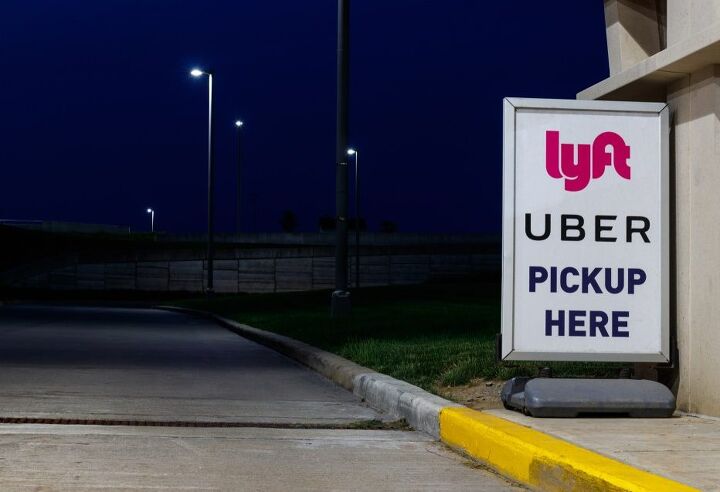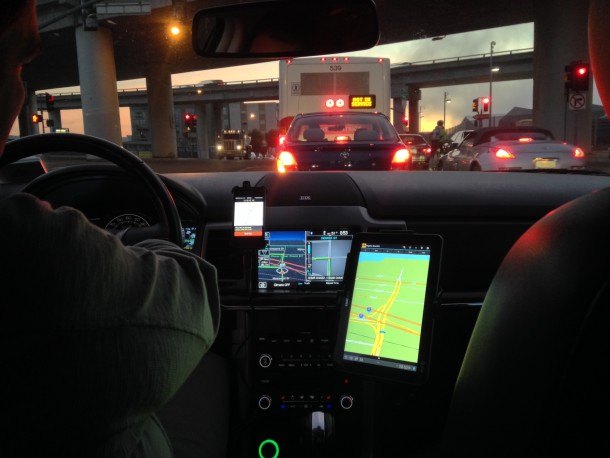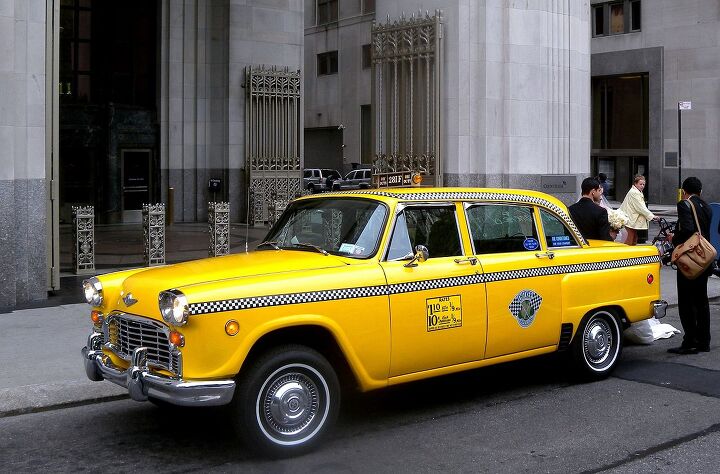#Cabs
Canadians Using Cabs to Avoid Quarantine Restrictions
With Ontario embracing some of the strictest lockdown restrictions in the West and giving the police force carte blanche when it comes to enforcing public health, many Canadians have told us they’re not exactly enthralled with the idea of notifying their government that they’ve been out of the country. This is doubly true if they’ve just flown in by plane because the nation now requires a few days’ stay in a hotel as part of its mandatory 14-day quarantine for those traveling by air.
Due to the added time, cost, and general hassle of booking yourself into a hotel for 3 nights — awaiting the results of a mandatory COVID test before you’re technically allowed to go home to continue self-isolation — some travelers have opted to utilize ground transportation for the explicit purpose of avoiding restrictions. Rather than flying all the way into the Great White North, Canadians are flying into neighboring American airports and then hailing a taxi that will take them across the border.
Opinion: Uber's Reserve Program is Mildly Troubling
Uber is launching a new feature that allows riders book trips up to 30 days in advance. While supposedly innovative, it smacks of desperation following years of multi-billion-dollar losses and an inability to account for pandemic-related lockdowns. The company reported a $1 billion loss in the third quarter of 2020, noting that gross bookings declined by 10 percent year-over-year. While the assumption is that business will improve as more cities reopen, only its business-baked bookings and its increasingly popular delivery services seem to be making any headway.
Reserve, which is what Uber is calling its new booking program, seeks to be another round in its corporate magazine by allowing customers to schedule rides far in advance. But having it serve as a new revenue stream seems wishful thinking because it doesn’t appear to offer much beyond the typical Uber experience since one could already pre-book rides. What Reserve changes is how this is done. The new service adds a flat fee to booked trips that’s dependent upon location and demand.
Lyft Abandons Operations in California Following Court Decision
As Uber contemplates ways to avoid having to close up shop in California following the passing Assembly Bill 5, Lyft is simply suspending operations as it waits to see how the appeals process works out.
On Thursday, the fuchsia-themed ride-hailing firm said it would not be able to maintain business as usual in the Golden State, citing several of the reasons we prognosticated in yesterday’s article about Uber mulling a franchise model. Included in the release was an inability to hire enough drivers in a manner that would appease the new law, resulting in reduced service (especially in suburban and rural areas), and a pricing increase deemed unfeasible for existing customers if implemented.
Uber Considers Franchise Model After California Cracks Down on Contractors
California took on the gig economy by passing updated labor laws (Assembly Bill 5) mandating companies treat contractors more like regular employees. Some predicted this would be the death knell for ride-hailing firms like Uber and Lyft, who are entirely dependent on them for their daily operations. Worse still, these companies remain unprofitable despite most of the the physical expenses being pushed onto drivers — who remain responsible for the upkeep of their own vehicles after receiving their cut of the fare.
Earlier this month, Uber CEO Dara Khosrowshahi published an op-ed in The New York Times suggesting contractors deserved better, but current circumstances dictated that the situation remain largely unchanged. He later suggested the service might have to leave California as it restructured its business model to appease new rules, saying it had to reclassify drivers as employees with all the accompanying benefits (paid leave, minimum wage, unemployment insurance, etc). San Francisco Superior Court Judge Ethan P. Schulman said that would be fine last week when he ruled that Uber and Lyft drivers were essential to operations and could not be treated as tangential to the business. He wanted to be absolutely clear that exemptions would not be made for ride-hailing firms, stating that it was “high time that they face up to their responsibilities to their workers and to the public.”
Uber lost $8.5 billion in 2019, making it difficult to envision a future where it can begin offering more to its drivers. But it also doesn’t want to lose out on market share as the industry jockeys for position. There needs to be another solution.
What about moving to a franchise model?
From Contractor to Employee: California Ruling Poised to 'Decimate' Uber, Lyft
An April ruling from the California Supreme Court determined that most contract workers, including those partnered with ride-hailing companies like Uber and Lyft, could actually qualify as employees under the state’s wage laws.
While that’s great in an era when wages can’t seem to match the constantly ascending cost of living and companies are cutting corners to maximize profits, it’s not so great for outfits that depend on contract workers to exist — like the aforementioned ride-hailing firms.
Uber and Lyft managed to balloon their revenues far beyond the billion-dollar mark, but neither company is currently profitable. Despite taking a cut of every single fare, expenses still result in a net loss for the companies during most rides. Assuming California forces them to tack on employee benefits and all the associated trimmings, both businesses could be in for a world of hurt.
Uber's Legal Woes Are Nothing Compared to Taxicabs' Early Days
The Uber transportation network has had its share of legal woes. When there’s a Wikipedia entry specifically on protests and legal action, including hundreds of lawsuits, against Uber, you know the company is doing its part in keeping attorneys employed.
Uber’s legal matters include claims of employment discrimination, harassment and retaliation, invasion of privacy, labor law violations, an intellectual property dispute with Alphabet/Google’s Waymo division over autonomous vehicles, the use of “grayballing” software to avoid detection by police enforcing local taxi laws, the possible criminal use of an application named Hell that tracked its competitors at Lyft, plus continuing drama involving Uber’s previous CEO Travis Kalanick.
That may seem like a unsavory stew of legal problems, but it’s small potatoes compared to the early days of the taxicab business, when bribery, stock manipulation, trademark infringement, jury tampering, bombings, and even murder was how business was done.
Nissan, Renault, Mitsubishi Hunting for Robo-taxi Deals With Tech Companies
The alliance consisting of Nissan, Renault, and Mitsubishi Motors is currently searching for partners for a plunge into the robo-taxi business. While chairman Carlos Ghosn claims mobility will never replace traditional ownership, he acknowledges the need to explore other avenues to remain competitive.
“A lot of people think this is substitution. It’s not — it’s addition,” Ghosn said in November. “The traditional business of building cars and selling cars and owning cars is going to continue.”
However, the supplemental businesses aren’t going off half-cocked. Ogi Redzic, Alliance senior vice president, has said he’s personally overseeing about 1,000 employees tasked with developing connectivity services for the automotive group and intends to announce the partners for the new autonomous cab service in the coming months.
Report: Uber Hasn't Made New York Traffic Worse, But It Could
Over the summer, New York City Mayor Bill de Blasio said Uber drivers were making Manhattan traffic worse and commissioned a $2 million study to prove it.
Except it didn’t.
According to the Wall Street Journal, findings from the report will show that ride-sharing services such as Uber and Lyft haven’t significantly increased congestion in Manhattan, but it might if it continues its current trajectory.
So, what else do you have?
Uber in Finland? Cops Say Hail No
Police in Helsinki are asking residents to skip the fare and call the cops if they spot an Uber driver within city limits.
Cops sent out a tweet Friday asking people to call emergency services (112 if you live in Finland, apparently) so authorities could have a chat with the enterprising driver. It’s illegal to operate a cab without a license, according to the Helsinki Sanomat (via Slashdot via Jack Baruth), and police are using citizen reports and even sting operations to crack down on the drivers.
It’s unclear if police are arresting or fining the Uber drivers.
After Clearing Legal Hurdles, Taxi of Tomorrow Now Taxi of Today
The New York City Taxi and Limousine Commission finally cleared its last hurdle in making the Nissan NV200 the new official taxi for NYC, Car and Driver reports.
The commission installed the NV200 as the new official taxi back in 2011, but legal challenges have delayed that process until now. The city licenses more than 13,000 cabs.
























Recent Comments